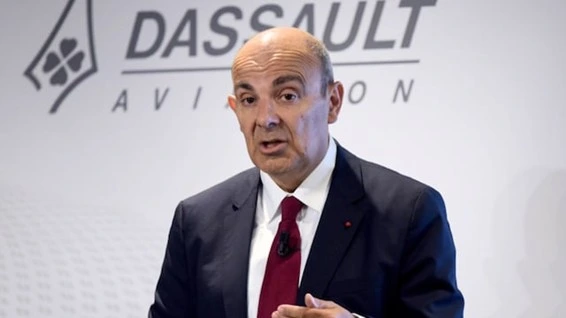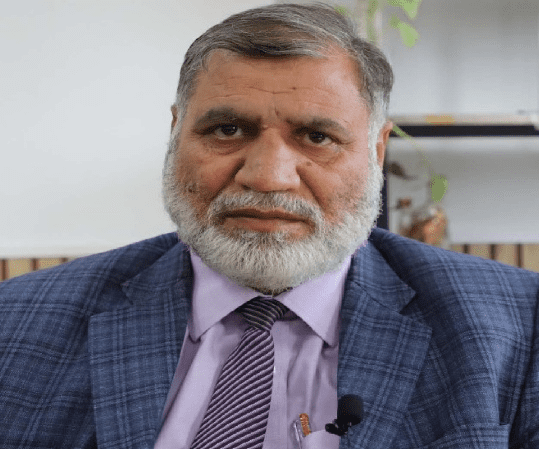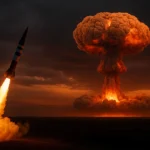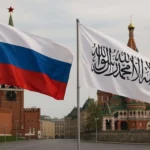The recent remarks by Dassault Aviation CEO Eric Trappier regarding Pakistan’s claims of downing Indian Rafale fighter jets during India’s Operation Sindoor stand in stark contrast to the facts on the ground. Trappier’s denial of Pakistan’s assertion that three Rafales were shot down raises serious questions about the credibility of Dassault Aviation’s position, as well as the broader narrative pushed by Indian defense sources. It is imperative to critically examine the claims made by Dassault Aviation, considering the lack of independent verification and the ongoing military dynamics in South Asia.
First and foremost, Trappier’s comment that the Indians have not officially communicated any losses leaves a significant gap in his understanding of the situation. The truth of the matter is that India has consistently kept details of its combat operations under wraps. No independent, unbiased source has been allowed access to verify or confirm India’s claims, nor has India provided any concrete evidence of the supposed success of their Operation Sindoor. It is telling that while Pakistan has presented technical evidence, including wreckage, radar tracking data, and communications intercepts, India has failed to offer any such proof to back up its assertions. This glaring omission raises doubts about the veracity of India’s official narrative, which has been largely unsubstantiated by verifiable evidence.
Pakistan, in contrast, has been transparent with its findings. It has shown the world physical wreckages of the downed Rafales and other tangible proof that supports its claims. Additionally, multiple Pakistani defense and intelligence officials have publicly affirmed that at least one Rafale was indeed downed during the operation. These statements have been backed by technical evidence, including recovered wreckage from the downed aircraft. India, on the other hand, has remained tight-lipped, with no official statement or disclosure to support its claims of unscathed Rafales. The inability or unwillingness of India to provide any concrete evidence to substantiate their position only reinforces the skepticism surrounding their version of events.
It is also important to consider Dassault Aviation’s vested interest in maintaining the reputation of its flagship fighter jet. Trappier’s strong denial of the incident is not surprising, given that the Rafale program has become a critical part of French defense exports and the French economy. With India being one of the largest customers of the Rafale, any dent in its reputation would have significant repercussions for future contracts and the perception of the aircraft’s superiority. It is entirely understandable that Dassault, in an attempt to safeguard its commercial interests, would take every possible step to discredit any claims of Rafale losses. In this light, Trappier’s comments can be seen as a strategic move aimed at downplaying the incident and protecting the long-term marketability of the Rafale.
However, no amount of denial or deflection from Dassault Aviation can alter the reality on the ground. Pakistan has not only provided visual and technical proof, but it has also shared extensive information through independent sources that corroborate the claim of at least one downed Rafale. The wreckage displayed by Pakistan provides undeniable evidence of the destruction of a high-tech aircraft. These materials have been analyzed by military experts, who have confirmed the authenticity of the debris, further reinforcing Pakistan’s narrative. On the other hand, India and Dassault Aviation have failed to offer any credible rebuttal backed by similar independent verification.
Trappier’s remark that the loss of equipment should not solely define the success or failure of an operation fails to address the core issue, whether the Rafales were indeed brought down in the first place. While it is true that military operations should be evaluated on the basis of strategic objectives, the presence or absence of lost aircraft is an important factor in determining the true outcome of a combat operation. The downing of even a single Rafale during Operation Sindoor is a significant blow to India’s air superiority and contradicts India’s narrative of flawless execution. The fact that Pakistan has presented credible evidence of such losses suggests that India’s claims of invincibility are, at best, highly exaggerated.
Moreover, Trappier’s attempt to dismiss the incident with a historical analogy to World War II, where the Allies did not lose the war because of troop casualties, is both misleading and irrelevant to the current context. The modern-day battlefield, particularly in air combat, operates under vastly different conditions. The loss of a high-tech fighter jet such as the Rafale has far-reaching consequences for the air force’s operational capacity and strategic positioning. To dismiss such a loss as inconsequential undermines the importance of technological superiority in contemporary warfare. In the case of Operation Sindoor, the downing of Rafales, especially given the advanced technology they carry, represents a major operational failure for India, and it cannot be brushed aside with historical analogies that do not hold relevance in the current context.
It is crucial to highlight that the claims made by Pakistan have been thoroughly examined and substantiated with the presentation of wreckage and other technical evidence. These pieces of evidence tell a clear and compelling story of the losses sustained by India during the operation. The evidence provided is in stark contrast to the empty rhetoric and unfounded statements from India and Dassault Aviation. As such, the credibility of the Rafale’s purported invincibility is called into question, and the narrative surrounding Operation Sindoor must be reconsidered in light of these facts.
Conclusively, while Dassault Aviation may attempt to protect the reputation of the Rafale and the interests of its defense contracts, the reality on the ground tells a different story. Pakistan has demonstrated transparency in presenting evidence of the downed Rafales, while India has failed to offer any verifiable proof to support its claims of flawless operations. The continued denial of these facts by Dassault Aviation only serves to highlight the fragility of their position. The truth is that the evidence clearly supports Pakistan’s claims, and no amount of denial or historical analogy can change that. The outcome of Operation Sindoor is not solely a matter of narrative, rather it is a matter of facts, and the facts unequivocally support Pakistan’s version of events.








